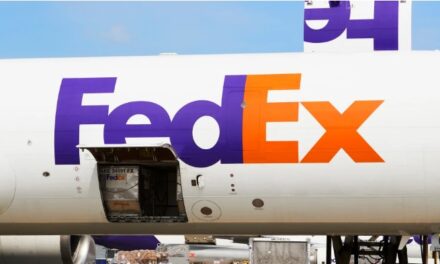
FedEx and UPS eye U.S. slowdown
Package shipping giants FedEx Corp and United Parcel Service Inc are walking a narrow path between expanding their businesses overseas and scaling back in the United States, where the economy has slumped.
But industry analysts say the two rivals should be able to weather a short-term slowdown without hefty drops in profits, with only a prolonged U.S. downturn presenting a serious threat.
Recessions push companies and individuals to rein in expenses, which includes package shipping. But revenues are not the only wild card for UPS or FedEx profits. The record surge in fuel prices for trucks and airplanes is another.
Like many U.S. transport companies, UPS and FedEx have been routinely passing on higher fuel costs to customers. But in a recession, such surcharges are just one more reason for customers to cut shipments.
Rising fuel costs also present big challenges to the shippers just in managing cash flows and hedging.
While Graf says FedEx has leeway in allocating its capital expenditures, growing markets like China remain a priority.
FedEx’s total capex spending should be about USD 3 billion for the fiscal year beginning on June 1, he said.
As part of its expansion plans, FedEx will open a new air hub in Guangzhou, China, in 2009.
At UPS, overseas spending that includes the booming China market will also remain core to its strategy in 2008 and 2009.
UPS’s new airport hub in Shanghai will open this year.
In their latest quarters, net profit declined 12 percent at UPS and fell 7 percent at FedEx. Both cited the sluggish state of the U.S. economy and high fuel costs.
Both companies still derive about three-quarters of their business from the United States, said Morningstar analyst Keith Schoonmaker.
The good news, highlighted by both, was growth in international package shipments, including a boost from rising U.S. exports on the back of the weak U.S. dollar. Package shipping giants FedEx Corp and United Parcel Service Inc are walking a narrow path between expanding their businesses overseas and scaling back in the United States, where the economy has slumped.
But industry analysts say the two rivals should be able to weather a short-term slowdown without hefty drops in profits, with only a prolonged U.S. downturn presenting a serious threat.
"Both UPS and FedEx are well positioned to ride out a recession," said Standard & Poor's analyst Jim Corridore. "They have healthy balance sheets and veteran managers who've been through this before and know how to respond."
Recessions push companies and individuals to rein in expenses, which includes package shipping. But revenues are not the only wild card for UPS or FedEx profits. The record surge in fuel prices for trucks and airplanes is another.
Like many U.S. transport companies, UPS and FedEx have been routinely passing on higher fuel costs to customers. But in a recession, such surcharges are just one more reason for customers to cut shipments.
Rising fuel costs also present big challenges to the shippers just in managing cash flows and hedging.
FedEx, which buys about 300 million gallons of jet fuel per quarter, is paying about USD 1 a gallon more than it did a year ago, Chief Financial Officer Alan Graf said.
While Graf says FedEx has leeway in allocating its capital expenditures, growing markets like China remain a priority.
FedEx's total capex spending should be about USD 3 billion for the fiscal year beginning on June 1, he said.
As part of its expansion plans, FedEx will open a new air hub in Guangzhou, China, in 2009.
Last year the company launched a China domestic service covering 200 cities. While that service is losing money, FedEx founder and Chief Executive Fred Smith said it was on track to meet internal targets for turning a profit, but he did not say when that was expected to be.
At UPS, overseas spending that includes the booming China market will also remain core to its strategy in 2008 and 2009.
UPS's new airport hub in Shanghai will open this year.
In their latest quarters, net profit declined 12 percent at UPS and fell 7 percent at FedEx. Both cited the sluggish state of the U.S. economy and high fuel costs.
Both companies still derive about three-quarters of their business from the United States, said Morningstar analyst Keith Schoonmaker.
The good news, highlighted by both, was growth in international package shipments, including a boost from rising U.S. exports on the back of the weak U.S. dollar.
While neither company is recession-proof, he said, "they should continue to see overseas growth even though it looks like things will slow down in the U.S."
UPS CFO Kuehn in April called U.S. exports the "only bright spot in an otherwise dark sky right now," while FedEx's Smith said exports were currently the "only positive story in the U.S. economy."
Both companies have already seen U.S. customers cut costs by shifting from premium services to cheaper alternatives — sending packages overland rather than by air.
"This dilutes us, but at least we have FedEx Ground," Graf said. "It means we're diluting ourselves rather than losing business to our competitors."
Graf and Kuehn said their companies had some flexibility on costs and could ground some planes if package demand falls.
Morningstar analyst Schoonmaker sees the scope for cost savings in the United States as limited, as both companies have already streamlined operations here.
"The thing is that if you ground a plane, you still have to pay for the plane — that's the problem with an asset-based business," Schoonmaker said.
"But we'd have to see package volumes substantially below where we are now to have a serious impact on their profits," he added. "And we don't expect to see volumes fall much from current levels."












